Following a bad year for maple syrup, N.B. introduces insurance program for producers
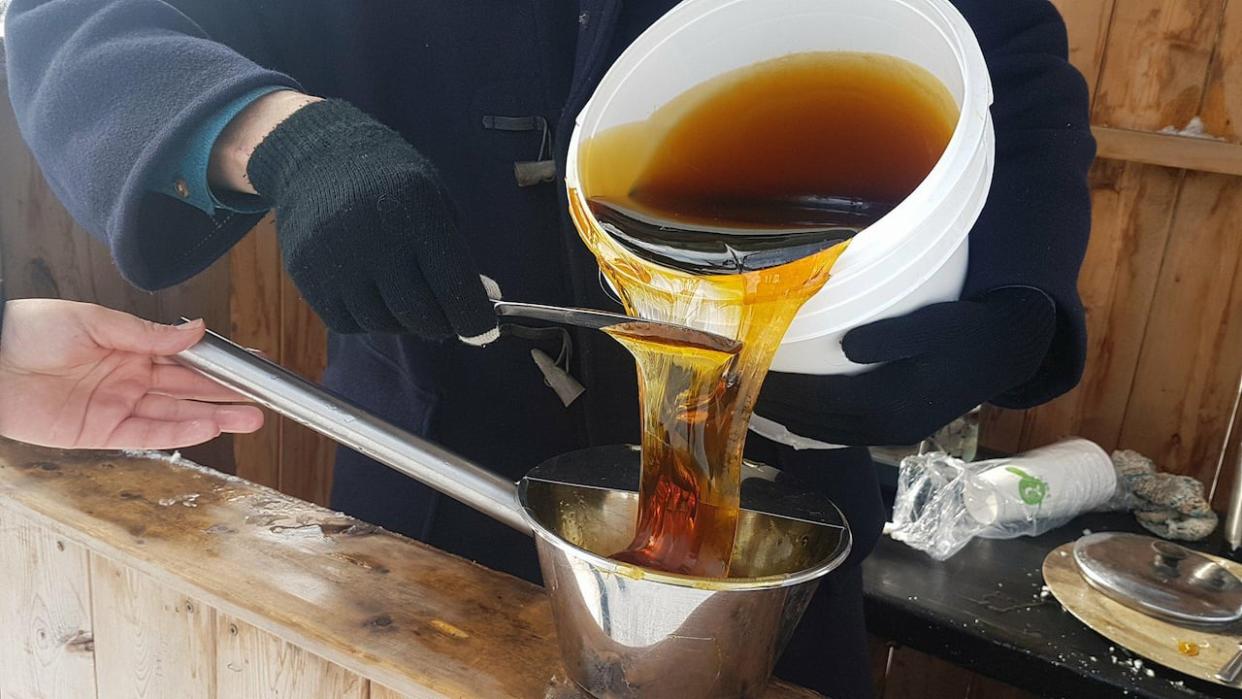
Saturday was a sweet day for maple syrup producers across New Brunswick — and not just because they were getting together for the industry's annual general meeting.
The day also marked the presentation of a planned insurance program beginning in 2025 which will allow producers to reap some of the same benefits other agricultural sectors already have.
Éric Caron, vice-president of the New Brunswick Maple Syrup Association, said the industry has been pushing for this insurance for a long time.
"Our members are very happy," he said on Saturday.
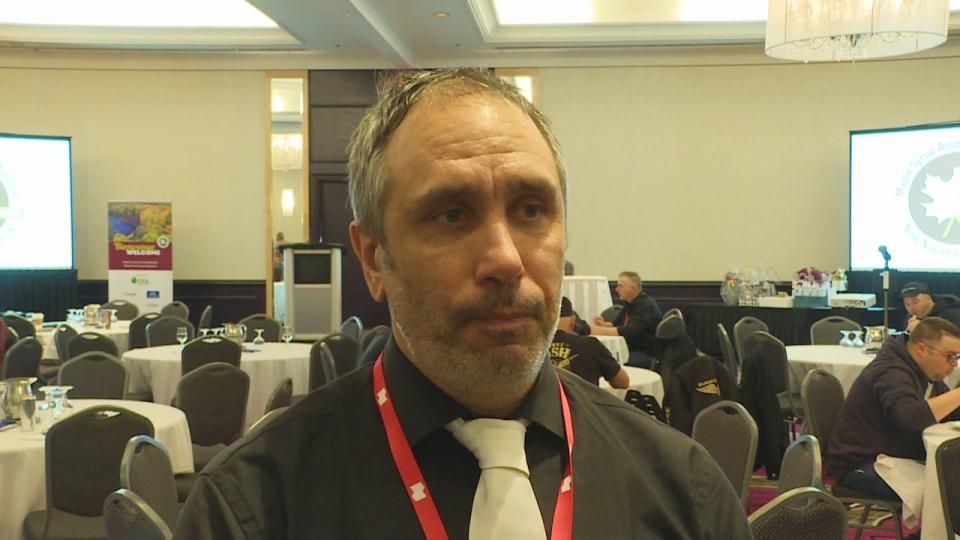
Éric Caron, vice-president of the New Brunswick Maple Syrup Association, says the industry has been pushing for crop insurance for a long time. (Lars Schwarz/CBC)
According to Statistics Canada, New Brunswick produced nearly two million litres (527,000 gallons) of maple syrup last year, compared to the year before when more than three million litres (811,000 gallons) were produced.
And while Agriculture and Agri-Food Canada has a program that pays agricultural producers in advance to help them survive through the off-season, during a bad year, producers might struggle to reimburse the program.
Caron said the insurance will allow producers to cover costs during years like the one that just passed.
In New Brunswick, agricultural insurance is currently available for apples, grains, grain corn, oilseeds, potatoes, sweet corn, strawberries, fresh market vegetables and wild blueberries.
New Brunswick is the second largest producer of maple syrup in Canada, behind Quebec, which also experienced a large drop last year, of 41.3 per cent.
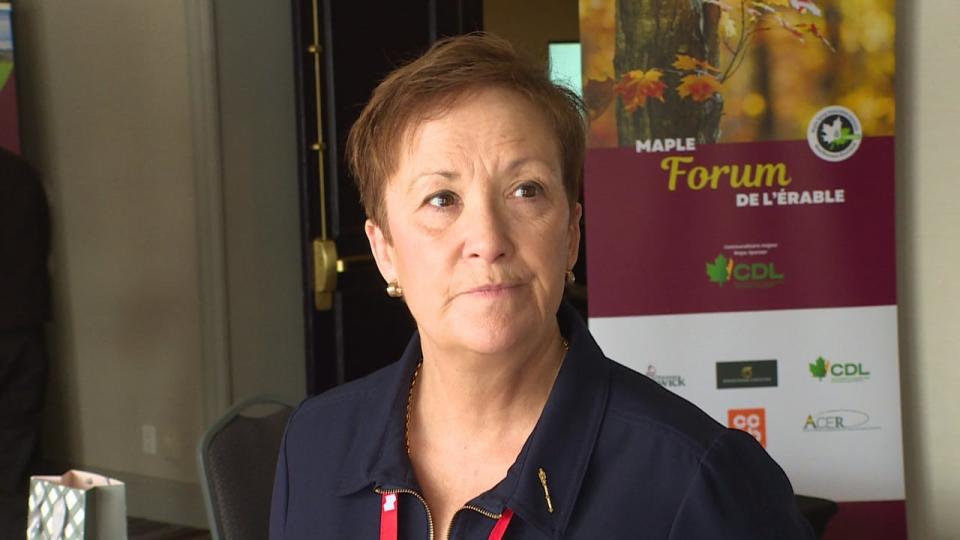
Agriculture Minister Margaret Johnson says before looking at expanding the program, her focus is on getting people to buy into it. (Lars Schwarz/CBC)
But Quebec already had a crop insurance program in place for maple syrup producers.
On Saturday, Agriculture Minister Margaret Johnson couldn't say why crop insurance for maple syrup producers in New Brunswick didn't come sooner when some other provinces already have it.
"It was before my time," she said. "I just know that since I've come to work on this, we've recognized that it's a need in the industry, and we want to support the industry.
"I'm not comparing what we're doing to anybody else. I'm just focusing on my own members and making sure that we're protecting and supporting our industries."
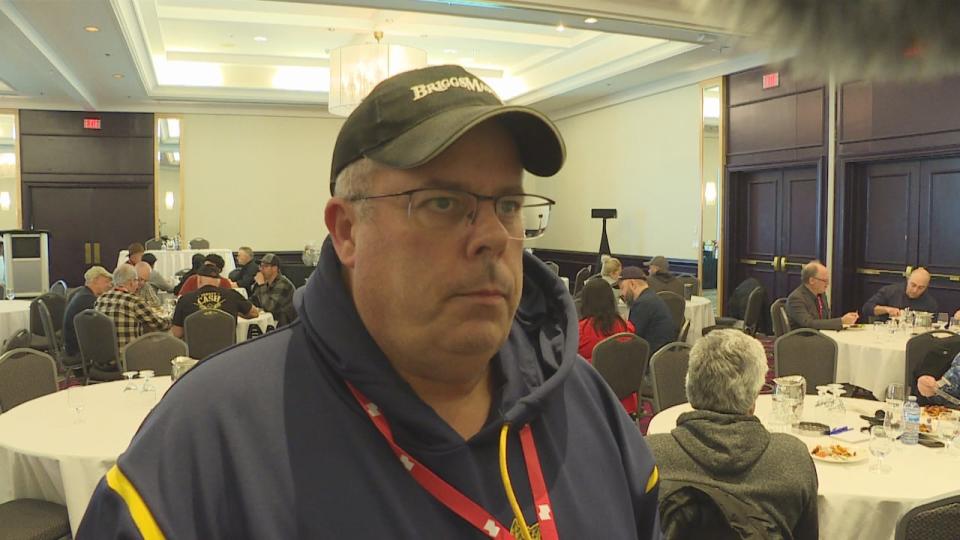
David Briggs, a maple syrup producer just outside of Moncton, says he thinks crop insurance will especially help larger producers. (Lars Schwarz/CBC)
Johnson said the program is meant to spark expansion in the industry. She said she wants to make sure young people especially know there are programs in place to support them if they choose to go into the agriculture field.
On Monday, Mark Taylor, communications director for the Department of Agriculture, provided some details about the program, which he said are still being finalized, as the official launch of the program will be later in the year.
He said the program will provide financial assistance to producers when "they experience a significant production shortfall due to an insured peril."
The program will be available to producers with 10 years of production history and a minimum of 1,000 taps.
When asked about expanding the program to include more producers, Johnson said her main concern at the moment is getting the program off the ground and getting people to buy into it.
"People are excited about it, but the success of the program will be dependent upon the uptake," she said.
"We'll look at expansion and modifications as time goes on."
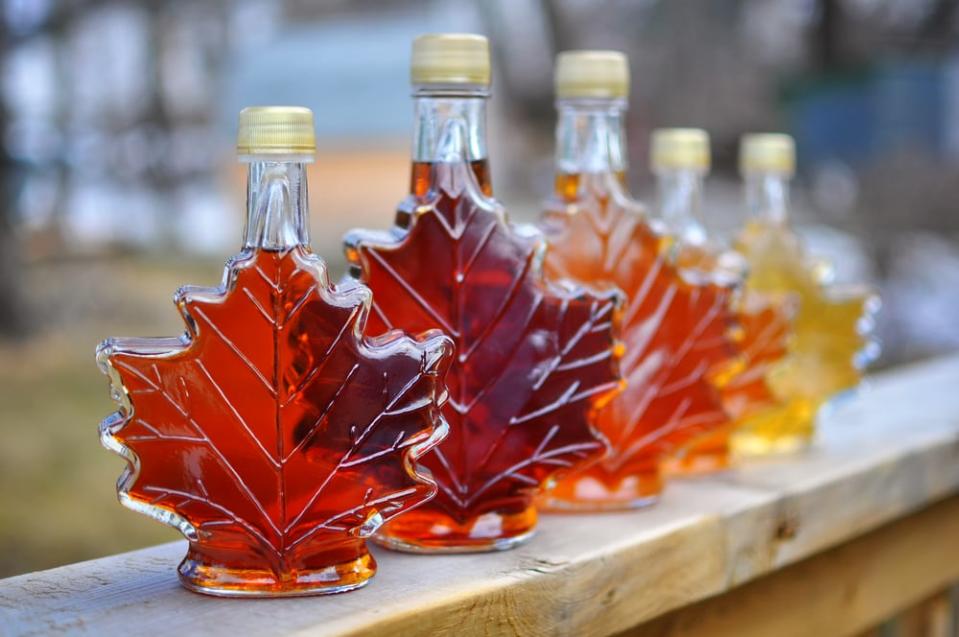
Briggs says it’s too early to say how the coming season will go. (Cindy Creighton/Shutterstock)
David Briggs, a maple syrup producer just outside of Moncton that taps around 13,000 trees, said his operation didn't do as well last year as it did in years past, but it still fared better compared to the northern part of the province.
He said insurance would help a little during bad years, but he thinks it would be even more helpful for larger producers.
Looking ahead to the coming season, Briggs said it's too early to say how it will go, but he's hoping for the best.
"Every year is different and I don't predict good or bad until it's over," he said. "As long as it doesn't get too hot too fast, we could have a good season yet."


